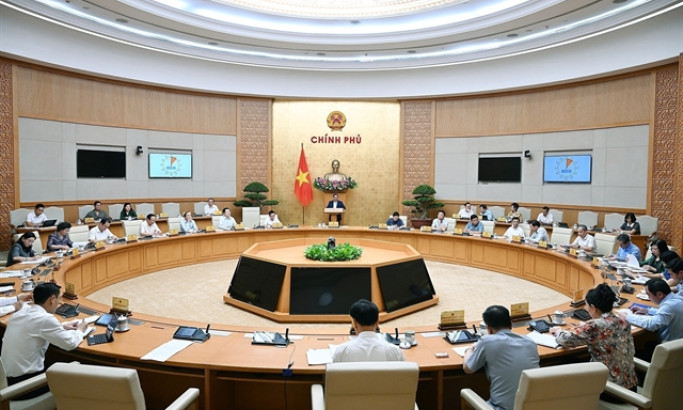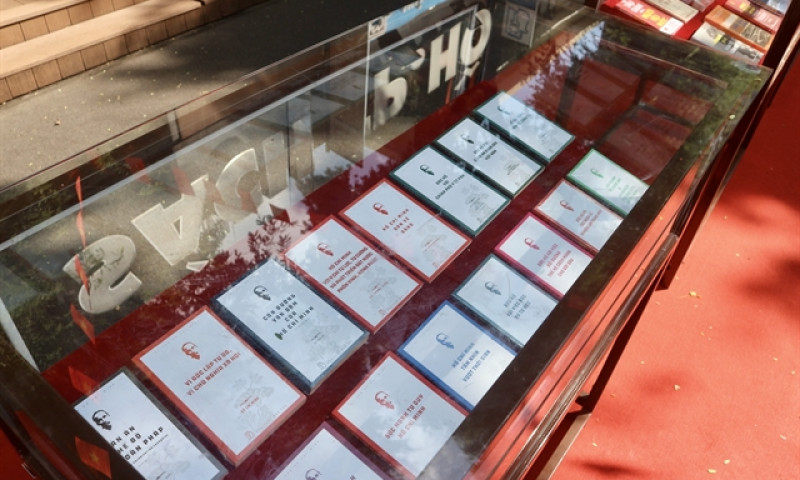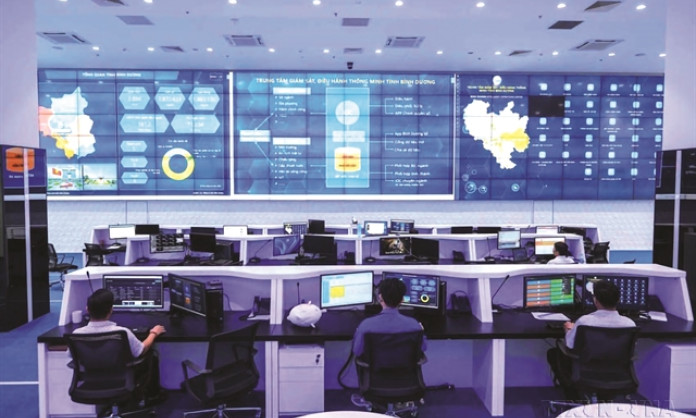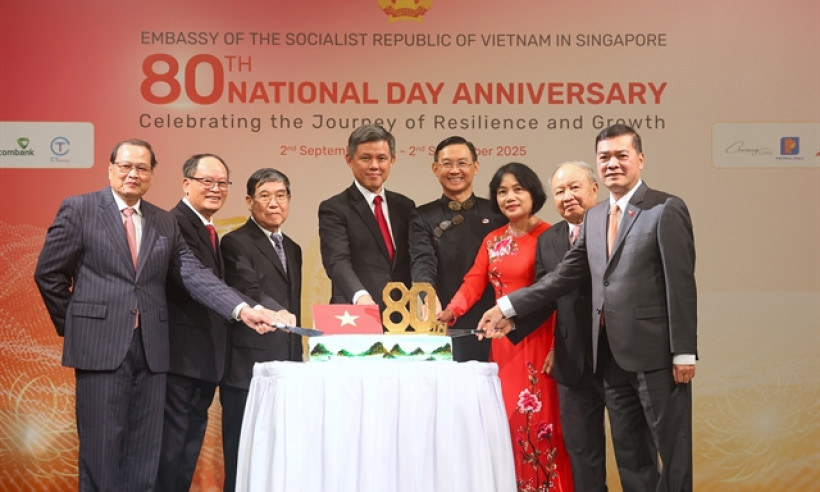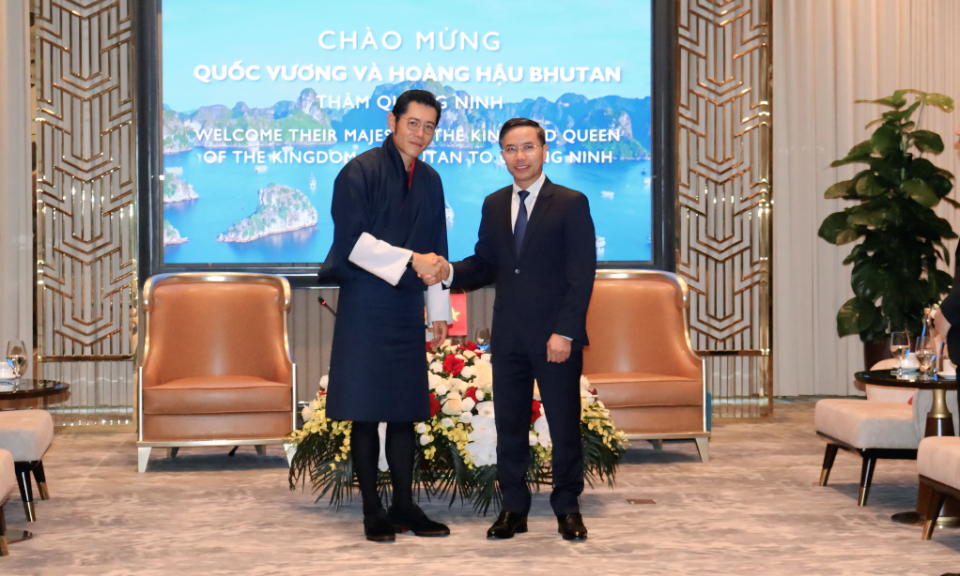PM updates Diplomatic Corps on local governance reform
Since the beginning of 2025, Việt Nam has undertaken many important initiatives, notably a “revolution in organisational structure,” shifting from a passive administration that merely responds to public demands to a proactive and service-oriented one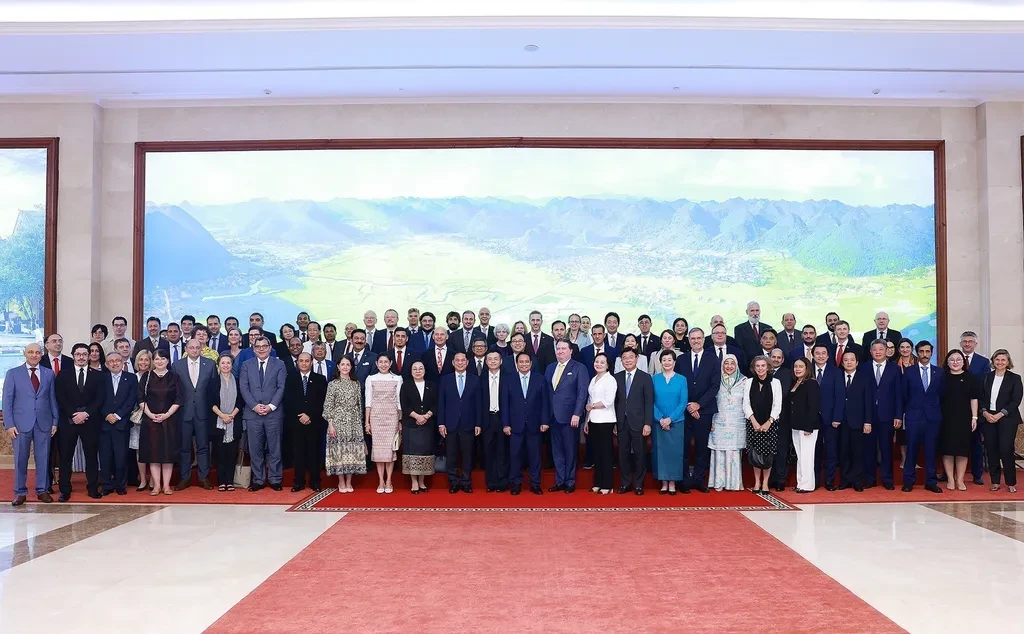
Prime Minister Phạm Minh Chính held a meeting with representatives of the diplomatic corps in Việt Nam on Thursday to brief them on the reorganisation of administrative units and two-tier local administration of the country.
The PM thanked ambassadors, chargés d’affaires, and representatives of countries and international organisations in Việt Nam for their sincere support and continued commitment to the country.
He stated that drawing on its 40-year renewal (Đổi mới) process, Việt Nam aims to become an upper middle-income country with a modern industrial base by 2030; and and a high-income developed nation by 2045.
To realise this vision, Việt Nam must adopt innovative thinking and decisive actions, building on three main pillars of socialist democracy, socialist rule-of-law state, and socialist-oriented market economy, with the people placed at the centre, as the subject, motivation, and resources of development, he stated.
Việt Nam identifies economic development as a core task, aiming to build an independent and self-reliant economy that actively and effectively integrates into the global economy, he said, adding that the country pursues the foreign policy of independence, self-reliance, multilateralisation and diversification of relations, and being a friend, trustworthy partner, and a responsible member of the international community. It is also steadfast in its “four no's” defence policy.
Việt Nam is also committed to ensuring social justice, progress, and welfare, leaving no one behind. It continues to build a clean and strong Party and political system, while intensifying efforts to combat corruption and negativity, he noted
According to the Government leader, despite many challenges, Việt Nam has achieved significant socio-economic progress thanks to Party leadership, united political efforts, public and business support, and international backing. The macroeconomy remains stable, inflation is controlled, major balances are ensured, and growth stays strong. Meanwhile, debt levels are well-managed, living standards have improved, and the country’s happiness index has risen by 33 places.
Since the beginning of 2025, Việt Nam has undertaken many important initiatives, notably a “revolution in organisational structure,” shifting from a passive administration that merely responds to public demands to a proactive and service-oriented one, he said.
He mentioned the implementation of four strategic pillars – science, technology, innovation, and digital transformation; international integration; breakthroughs in institutional improvement and legal enforcement; and private economic development. He noted that in the near future, new policies will also be introduced in education, healthcare, and culture.
The PM called for continued cooperation and support from international friends, affirming that ambassadors, chargés d'affaires, and representatives of countries and international organisations in Việt Nam serve as bridges linking Việt Nam with the world. He expressed appreciation for their contributions and support for mutual development and the shared goal of peace, cooperation, and development in the region and the world.
Addressing the event, Moroccan Ambassador Jamale Chouaibi, Deputy Head of the diplomatic corps in Việt Nam, praised Việt Nam's efforts to streamline its political apparatus and reorganise the two-tier local government system.
Chouaibi said Việt Nam's recent socio-economic achievements demonstrate the soundness of its strategic vision and policies. He expressed his belief that ongoing reforms will help Việt Nam climb global rankings in sustainable development, economic freedom, and innovation, while improving the people’s life and strengthening its role and position in the international arena.
Việt Nam's reforms and development also benefit businesses of countries and international organisations, he said, affirming that countries and international organisations will continue to support Việt Nam in realising its goal of becoming a high-income developed nation by 2045.
Ambassadors, chargés d’affaires, and representatives of international organisations in Hanoi expressed their interest and commitment to cooperating with and supporting Việt Nam's reform and development efforts, particularly in green growth, administrative reform, public administration modernisation, improving the quality of human resources, ensuring social welfare, and providing essential services for the people.

